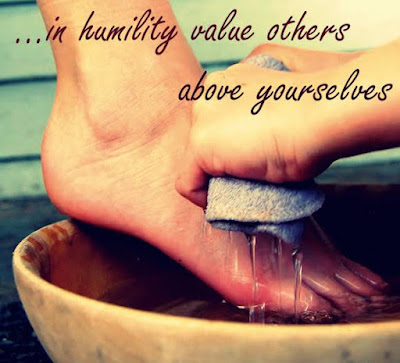HUMILITY, THE VIRTUE OF THE CHILDREN OF GOD.
August 28, 2022.
Twenty-second Sunday in Ordinary Time – C.
Readings: Sir 3:17-18, 20, 28-29; Ps 68:4-5, 6-7, 10-11; Heb 12:18-19, 22-24a; Lk 14:1, 7-14. "For every one who exalts himself will be humbled, but the one who humbles himself will be exalted.” Lk 14:11
A Korean proverb says: “Aim high in your career but stay humble in your heart.” And an Indonesian proverb adds: “To be a smart man you need to be humble.”
One of the most biblical virtues that defines the more our relationship with God and with others is humility. The Scriptures present it as the virtue of the greats, the virtue of the children of God, the virtue that opens to blessings and so to heavenly realms.
We live in a world and in societies that hold in great esteem the self and so lead to pride, envy, and the idolatry of the self. For the worship of the self many people can sacrifice anything and everything. And we make it hard to see others be blessed while we are not. Jealous and envy are the worst sins of those who lack the humility of accepting that others can do more than them.
The Catechism, speaking of life in Christ, with the 10th Commandment, says: "Envy represents a form of sadness and therefore a refusal of charity; the baptized person should struggle against it by exercising good will. Envy often comes from pride; the baptized person should train himself to live in humility: Would you like to see God glorified by you? Then rejoice in your brother's progress and you will immediately give glory to God. Because his servant could conquer envy by rejoicing in the merits of others, God will be praised." CCC 2540
The readings today are a calling to that life in Christ, to a genuine imitation of our Lord through the virtue of humility. The Wiseman, in the first reading, prodigates some pieces of advice that could help us live as children of God. He says, "My child, conduct your affairs with humility, and you will be loved more than a giver of gifts." Humility is a beautiful and great virtue that opens us to God's blessings. The humble opens himself to God and is disposed to receive from him, while the pride, because of being full of himself let no room for grace to operate in him. Humility gives to man to be like an empty glass where something can be added, one opened to learn and to receive. Arrogant and proud people are full glasses, filled with self-sufficiency. Nothing then can be added unto them.
“Humility, Francois Varillon could say, in his work “The Humility of God”, is the most radical aspect of love. Poverty, understood in a completely spiritual sense, is not its perfect synonym.” Genuine humility is often seen in poor people. But the Wiseman tells us that that must not be only for poor and powerless or marginalized to be humble. He says, "Humble yourself the more, the greater you are, and you will find favor with God."
In the Gospel, the Lord Jesus tells us how humility can and must be seen in our daily life, in the basic things we do. In a simple way, he exhorts his followers to be always eager to take the last place. He says, through the parable of the guests reclining at a banquet: “When you are invited by someone to a wedding banquet, do not recline at table in the place of honor."
The banquet is a common and very dear image the Lord uses to speak of the Kingdom of God. As his followers, we are all invited at banquet. Our attitude then should be that of great humility, to not envy or desire the positions of honor or the first place but rather make option for simplicity and service.
The Lord insists on that matter of humility as a way to be admitted into God's presence and he seems telling us that those who lack humility in their conduct, the haughty and the arrogants, harvest humiliation.
Besides the calling for humility, the other message is a call to act without expecting any gratification or human praises. “When you hold a lunch or a dinner, do not invite your friends or your brothers or your relatives or your wealthy neighbors, in case they may invite you back and you have repayment. Rather, when you hold a banquet, invite the poor, the crippled, the lame, the blind; blessed indeed will you be because of their inability to repay you. For you will be repaid at the resurrection of the righteous.”
Many are they who cannot do anything for nothing. As pure calculators, all their actions and gestures are interested. If they give A, it is because they expect to receive B. As if to say, I invite you for lunch so that you may invite me at dinner. What we are called for, as Christians is a disinterested service and mostly to make ourselves servants of the needy and the most vulnerable of our brothers and sisters. It is at that cost only could we dream of being welcomed into God's presence and at His banquet of love.
The Letter to the Hebrews tells us that by embracing the faith in the Lord Jesus, we have come into the new Jerusalem, the presence of the living God. Our life, therefore, should be that of people who have seen God and live into his grace and presence. Our God is not a mysterious and unapproachable God. He is rather a God who can be reached when one opens himself to reach out to the poor and the needy, a God who loves humility and finds his delight in the humble and the simple. May we make of humility, simplicity, and joy our way of life.





Comments
Post a Comment